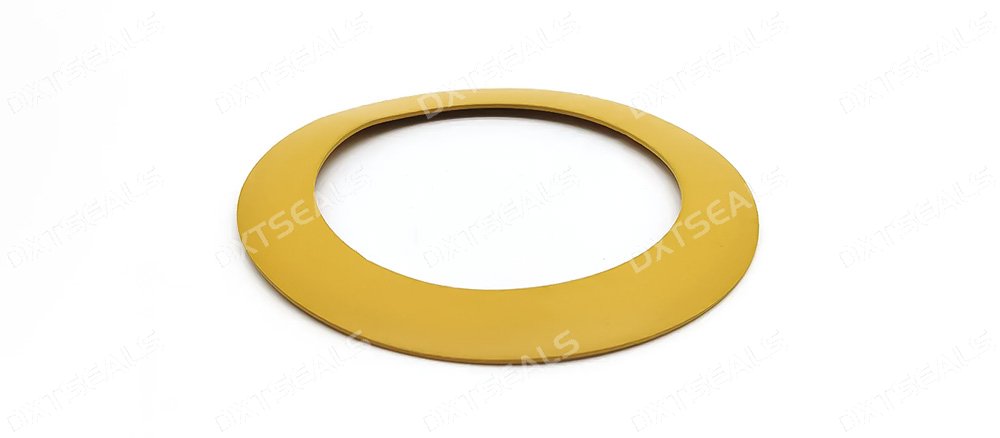
Introduction
The piston cup is a crucial component of air compressors, playing an essential role in ensuring proper sealing and optimal compression performance. Made from a variety of materials, piston cups are designed to handle different operating conditions, such as temperature, pressure, and wear. In this article, we will explore the main features of air compressor piston cups and the common materials used in their construction.
Features of Air Compressor Piston Cups
Air compressor piston cups are engineered for efficient sealing and performance, and they possess several important features:
1.Sealing Efficiency: One of the primary functions of a piston cup is to ensure a tight seal between the piston and the cylinder wall. This helps maintain proper compression of air within the cylinder, preventing air leakage and improving overall efficiency.
2.Durability: Piston cups are designed to withstand repeated cycles of compression and decompression. They must endure constant friction, pressure, and temperature changes without degrading or losing effectiveness.
3.Low Friction: To enhance the lifespan and performance of the compressor, piston cups are often designed with low-friction surfaces. This reduces wear and tear on both the piston cup and the cylinder, minimizing the need for frequent replacements.
4.Temperature Resistance: Depending on the material used, piston cups can operate in high-temperature environments without melting or degrading. This is especially important for industrial air compressors that generate significant heat during operation.
5.Pressure Tolerance: Air compressors often operate under high-pressure conditions, and the piston cup must be able to maintain its integrity and seal under such pressure without deforming.
6.Compatibility with Lubricants: Piston cups need to be compatible with the lubricants used in air compressors. This ensures smooth operation, reduces friction, and prevents material degradation due to chemical reactions with the lubricant.
Common Materials Used for Air Compressor Piston Cups
The material composition of piston cups directly affects their performance, durability, and suitability for specific applications. Below are some of the most common materials used in air compressor piston cups:
Nitrile Rubber (NBR):
Properties: NBR is one of the most commonly used materials for piston cups due to its excellent resistance to oil and wear. It can also withstand moderate temperatures, making it suitable for most standard air compressor applications.
Advantages: Good flexibility, wear resistance, and oil resistance.
Applications: NBR piston cups are commonly used in general-purpose air compressors and automotive compressors.
Polyurethane (PU):
Properties: Polyurethane is known for its superior abrasion resistance and toughness. It offers a longer lifespan compared to rubber and is effective in high-pressure and high-friction environments.
Advantages: High wear resistance, good elasticity, and durability.
Applications: PU piston cups are ideal for high-pressure compressors and heavy-duty industrial applications.
Fluorocarbon (Viton):
Properties: Viton is highly resistant to heat, chemicals, and oils, making it ideal for use in harsh environments with extreme temperatures and aggressive chemicals.
Advantages: Excellent high-temperature resistance and chemical compatibility.
Applications: Viton piston cups are used in specialized air compressors for chemical processing, oil refineries, and other high-temperature applications.
Polytetrafluoroethylene (PTFE):
Properties: PTFE, commonly known as Teflon, is widely used in applications that require low friction and excellent chemical resistance. It also has a very wide operating temperature range.
Advantages: Outstanding low friction properties, chemical inertness, and resistance to high temperatures.
Applications: PTFE piston cups are used in compressors where high performance, low friction, and chemical resistance are critical, such as in food processing or pharmaceutical industries.
Leather:
Properties: Leather piston cups have been used traditionally in air compressors. Although less common today, they offer good flexibility and sealing capabilities.
Advantages: Natural material with good sealing properties in specific low-pressure applications.
Applications: Leather piston cups are still used in some older or specialty compressors, especially in agricultural or workshop equipment.
Advantages of Choosing the Right Material
Selecting the right material for piston cups is crucial for optimizing the performance of an air compressor. The right material can provide the following benefits:
Extended Service Life: Using durable materials like PU or PTFE can significantly reduce wear and tear, extending the lifespan of the piston cups and reducing the need for frequent replacements.
Improved Efficiency: Materials with low friction, like PTFE, help reduce energy consumption and improve the overall efficiency of the air compressor.
Enhanced Resistance to Environmental Factors: High-performance materials like Viton or NBR can withstand challenging environments, including exposure to high temperatures, chemicals, and oils, ensuring that the compressor continues to operate efficiently.
Reduced Maintenance Costs: Durable materials help minimize wear and damage, reducing downtime and maintenance expenses.
Conclusion
Air compressor piston cups are a vital component that plays a key role in the efficiency and durability of an air compressor. Choosing the right material, whether it's NBR for oil resistance, PTFE for low friction, or Viton for high-temperature applications, can significantly enhance performance and extend the lifespan of the compressor. Understanding the features and common materials of piston cups will help ensure that your air compressor operates smoothly and efficiently in any industrial or commercial setting.
Call to Action
Looking for high-quality piston cups for your air compressor? Contact us today to learn more about our range of materials and sealing solutions tailored to your specific needs!
